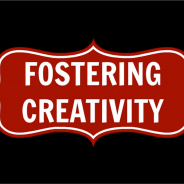Is It Time For New Guardrails On Social Media Algorithms?
A key reason for the rise of advertising on social media is the ability of algorithms to identify priority customers, message them with more relevant content and ultimately build a strong, emotional bond with them. Good marketing starts with in-depth research on the customer to ideally find those “hot emotional buttons” that excite them and sustain their loyalty to a brand. Nothing is more effective for learning more about customer nuances and behavior than what these algorithms can uncover, although privacy has become a big issue,...
read moreTwitter To “X” – Will The Re-Branding Succeed?
Recently Elon Musk announced a total re-branding of Twitter, which has stirred up a slew of critical responses. The immediate focus has been on the brand name, “X”. But a re-branding involves much more, especially the impact on the Twitter brand value and its loyal customers, plus what “X.com” will promise to ensure success going forward. While Musk has accomplished so much and is worth billions, this re-branding venture puts him into new territory where there are many critical risks and challenges ahead for re-positioning Twitter as an...
read moreHow Creativity Can Overcome Declining Fertility Consequences
Creativity is considered by many business leaders to be the most important skill set to meet the growth challenges of the future, whether it involves branding, advertising or worker productivity. The global decline of birthrates will decrease the number of younger workers who account for the most imaginative innovations, but there are also opportunities to counteract these challenges. The Profound Consequences Of Lower Fertility The Economist recently focused on this problem of fertility and aging economies. Basically there are three...
read moreBranding Opportunities For A New “Summer of Hope”?
It seems the world situation has never been more depressing– e.g. bitter polarization of our politics, Russian atrocities in Ukraine, dangerous competition with China, the sad revelations about Trump’s latest corruptions, more mass shootings, and now pollution in the Northeast from climate change fires in Canada. But the summer is about to start, which is traditionally a season of hope, optimism and adventure. And with this comes opportunities for brand marketers to identify new flavors and microtrends to emotionally connect with...
read moreHow Our Toxic Culture Is Negatively Impacting Gen Z Youth
American culture remains in constant flux. Over the years, each generation has experienced changing values and behavioral traits shaped by wars, economics, new innovations and especially technology. These cultural upheavals are important for brand marketers as trends and emerging values require careful adaptation. In her new book, “Generations”, the psychologist Jean Twenge states “technology has completely changed the way we live, and the way we think, behave and relate to each other”. Twenge summarizes the special characteristics of each...
read moreThe Evolution Of “Woke” In Political Branding
In March I mentioned to a friend that my daughter recently spoke at a global UNESCO conference in Abu Dhabi on “safeguarding cultural heritage”, mainly relating to climate change. He asked if that was an anti-woke message. I was confused as I hear so many interpretations of what “woke” means today. Did my friend infer that this message was a positive or a negative? I asked myself, how could anyone question climate change or the importance of country’s cultural heritage today. The term “woke” is being used often these days, especially in...
read moreWhy A.I. Can Use An Emotional Branding Dimension
Artificial Intelligence (A.I.) is coming with a vengeance. Most pundits predict A.I. will dominate business, the arts, education and most communications in the future. But as David Brooks of the NY Times pointed out in his February column “In the Age of A.I., Major in Being Human”, the effectiveness of A.I. is often limited by a lack of emotion, passion, and imagination – the critical human values for fully engaging its audience. As Brooks describes it, “it feels kind of lifeless”. Business can improve the use of A.I. if it adopted the...
read moreFinland: The Brand Leader For Resisting Misinformation
Misinformation has become a severe worldwide problem and a major contributor to rising divisiveness, hatred and even violence. With social media, in particular, opening the door for anyone to create and share falsehoods and conspiracy stories, overall trust in media and government institutions is at an all time low. This has also become a quandary for defenders of freedom of speech, especially when misinformation endangers one’s health (e.g. promoting ineffective or unsafe medications for Covid). Europe has traditionally been more...
read moreWhat George Santos Reveals About Brand Authenticity
George Santos, the recently elected Republican Congressman from New York, has taken the disinformation phenomenon to a new level His lies about his background were so blatant and full of extreme fantasy that it begs the questions of why, how did he get away with it initially, and what can we learn from his attempt to invent a new life, or really a new personal brand. Moreover, what does this tell us about the dangers to our society when such extreme misinformation can enable untrustworthy politicians into our government? A branding...
read moreThe Emerging Re-Branding Battle: Stakeholder And Woke Capitalism
The gloves are coming off. The lines are being drawn. Just like everything else these days, the interpretation and branding of a new version of “capitalism” is being politicized, dividing business and community leaders, and of course politicians. The steadfast emergence of stakeholder capitalism as a model for promoting the public good beyond just making a profit, has created an intense backlash, mainly among conservatives who label it “woke capitalism”. The driving force of social responsibility, especially among young people and also...
read more











